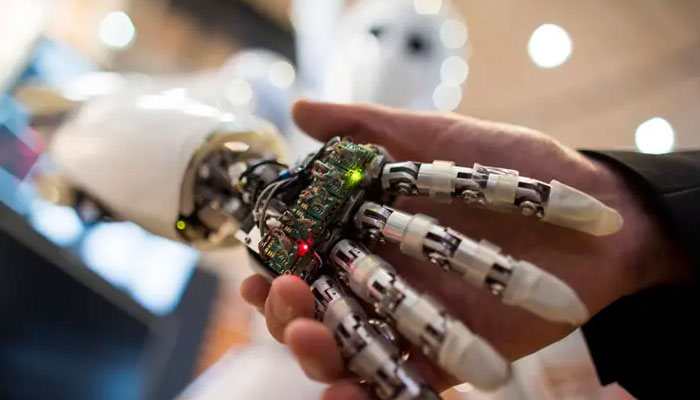Open letter raises ethical and societal concerns over AI's progress
Letter says AI could soon display human-like consciousness and feelings and will have capabilities beyond what developers currently comprehend
April 28, 2023

Leaders in academia worldwide have come together to pen an open letter urging artificial intelligence (AI) developers to study consciousness, as AI systems advance at an unprecedented pace, and ethical, legal, and political concerns arise.
The Association for Mathematical Consciousness Science (AMCS), a community of over 150 international researchers dedicated to mathematical and computational approaches to consciousness, published the letter on Wednesday.
The letter serves as "a wakeup call for the tech sector, the scientific community, and society at large" to accelerate research in the field of consciousness science.
The writers cited the recent letter from tech leaders calling for a pause in AI experiments, noting that we are living in an exciting yet uncertain time in the development of AI and brain-related technologies. They warned that AI is progressing at a rate that far exceeds our understanding of their capabilities and their alignment with human values.
The signatories argue that language models such as OpenAI's ChatGPT and Google's Bard are built on the neural networks of animal brains, but in the near future, they will be constructed to mimic aspects of higher-level brain architecture and functioning. The letter stated that AI systems could soon display human-like consciousness and feelings.
As a result, the signatories believe that AI will have capabilities beyond what their developers can currently comprehend, which will change what AI can do, and what society can do to control, align, and use such systems.
The letter stresssed that as AI develops, it is essential for societal institutions and governing bodies to understand whether and how AI systems can become conscious and the implications thereof.
The open letter specifically explains that science needs to develop mathematical tools to measure and model consciousness, particularly as it relates to AI.
"Research in consciousness is a key component in helping humanity understand AI and its ramifications. It is vital for managing ethical and societal implications of AI and to ensure AI safety," the letter concluded.
The letter called on the tech sector, the scientific community, and society as a whole to accelerate research in consciousness to ensure that AI development delivers positive outcomes for humanity.









